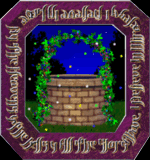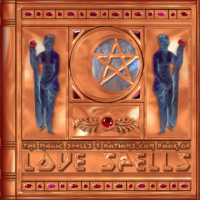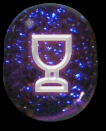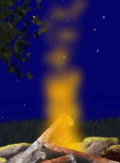Rue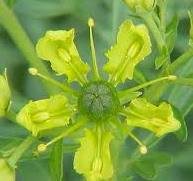
This herb was further termed of old "Herb of Grace" as well as "Serving men's joy," because of the multiplicity of common ailments which it was warranted to cure. Rue constituted a chief ingredient of the famous antidote of Mithridates to poisons, the formula of which was found by Pompey in the satchel of the conquered King.
Added Dec 1, 2010
| 6,287 Reads
The wild Rue is found on the hills of Lancashire and Yorkshire, being more vehement in smell and in operation than the garden Rue. This latter, Ruta graveolens, (powerfully redolent), the common cultivated Rue of our kitchen gardens, is a shrub with a pungent aromatic odour, and a bitter, hot, penetrating taste, having leaves of a bluish-green colour, and remaining verdant all the year round. It is first mentioned as cultivated in England by Turner, in his Herbal, 1562, and has since become one of the best known and most widely grown Herbal Simple for medicinal and homely uses. The name Ruta is from the Greek reuo, to set free, because this herb is so efficacious in various diseases. The Greeks regarded Rue as an anti-magical herb, since it served to remedy the nervous indigestion and flatulence from which they suffered when eating before strangers: which infirmity they attributed to witchcraft. This herb was further termed of old "Herb of Grace" as well as "Serving men's joy," because of the multiplicity of common ailments which it was warranted to cure. Rue constituted a chief ingredient of the famous antidote of Mithridates to poisons, the formula of which was found by Pompey in the satchel of the conquered King. The leaves are so acrid, that if they be much handled they inflame the skin; and the wild plant possesses this acridity still more strongly. Water serves to extract the virtues of the cultivated shrub better than spirit of wine is able to do. The juice of Rue is of great efficacy in some forms of epilepsy, operating for the most part insensibly, though sometimes causing vomiting or purging. Piperno, a Neapolitan physician, in 1625, commended Rue as a specific against epilepsy and vertigo. For the former malady at one time some of this herb was suspended round the neck of the sufferer, whilst "forsaking the devil with all his works, and invoking the Lord Jesus." Goat's Rue, Galega, is likewise of service in epilepsy and convulsions. If a leaf or two of Rue be chewed, a refreshing aromatic flavour will pervade the mouth, and any nervous headache, giddiness, hysterical spasm, or palpitation, will be quickly relieved. Two drachms of powdered Rue, if taken every day regularly as a dose for a long while together, will often do wonders. It was much used by the ancients, and Hippocrates commended it. The herb is strongly stimulating and anti-spasmodic; its most important constituent being the volatile oil, which contains caprinic, pelargonic, caprylic, and oenanthylic acids. The oxygenated portion is caprinic aldehyde. In too full doses the oil causes aching of the loins, frequent urination, dulness and weight of mind, flushes of heat, unsteadiness of gait, and increased frequency of the pulse, but with diminished force. Similar symptoms are produced during an attack of the modern epidemical influenza; as like-wise by oil of wormwood, and some other essential oils. Externally, Rue is an active irritant to the skin, the bruised leaves blistering the hands, and causing a pustular eruption. Gerard says, "The wild Rue venometh the hands that touch it, and will also infect the face; therefore it is not to be admitted to meat, or medicine." It stimulates the monthly function in women, but must be used with caution. The decoction and infusion are to be made from the fresh plant, or (when this plant cannot be got), the oil may be given in a dose of from one to five drops. Externally, compresses saturated with a strong decoction of the plant when applied to the chest, have been used beneficially for chronic bronchitis. Rue is best adapted to those of phlegmatic habit, and of languid constitutional energies. It is often employed in the form of tea. The Schola Salernitana says about this plant:-- "Ruta viris minuit venerem, mulieribus addit Ruta facit castum, dat lumen, et ingerit astum Coctaque ruta facit de pulicibus loca tuta." "Rue maketh chaste: and eke preserveth sight; Infuseth wit, and putteth fleas to flight." The leaves promote the menses, being given in doses of from fifteen to twenty grains. "Pliny," says John Evelyn, "reports Rue to be of such effect for the preservation of sight that the painters of his time used to devour a great quantity of it; and the herb is still eaten by the Italians frequently mingled amongst their salads." With respect to its use in epilepsy, Julius Caesar Baricellus said: "I gave to my own children two scruples of the juice of Rue, and a small matter of gold; and, by the blessing of God, they were freed from their fits." The essential oil of Rue may be used for the same purpose, and in like manner. Formerly this plant was thought to bestow second sight; and so sacred a regard was at one time felt for it in our islands, that the missionaries sprinkled their holy water from brushes made of the Rue; for which cause it was named "Herb of Grace." Gerard tells us: "The garden Rue, which is better than the wild Rue for physic's use, grows most profitably (as Dioscorides said) under a fig tree." Country people boil its leaves with treacle, thus making a conserve of them. These leaves are curative of croup in poultry. In the early part of the present century it was customary for judges, sitting at Assize, to have sprigs of Rue placed on the bench of the dock, as defensive against the pestilential infection brought into court from gaol by the prisoners. The herb was supposed to afford powerful protection from contagion. At the present time the medicinal tincture (H.) is used for the treatment of rheumatism when developed in the membranes which invest the bones. If bruised and applied, the leaves will ease the severe pain of sciatica. The expressed juice taken in small quantities is a noted remedy for nervous nightmare. A quaint old rhyme says of the plant:-- "Nobilis est ruta quia lumina reddit acuta." "Noble is Rue! it makes the sight of eyes both sharp and clear; With help of Rue, oh! blear-eyed man I thou shalt see far and near." This is essentially the case when the vision has become dim through over exertion of the eyes. It was with "Euphrasy and Rue" the visual nerve of Adam was purged by Milton's Angel. As a preserver of chastity Ophelia was made by Shakespeare to give Rue to Hamlet's mother, the Queen of Denmark.
Added Dec 1, 2010
| 6,287 Reads
Share The Magic ...
The GoE MONEY!!! Course - A Course In Real MONEY MAGIC!
|

